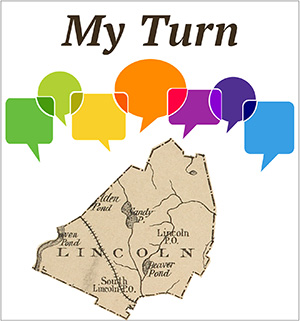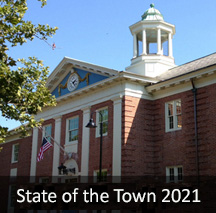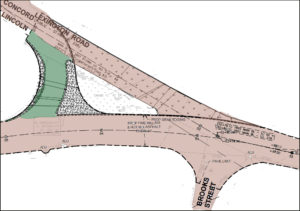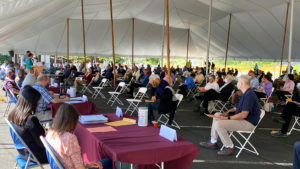 Lincoln’s ARPA Working Group will hold a virtual public meeting on Wednesday, Feb. 2 at 7 p.m. to discuss its initial recommendations and hear public comment on how best to spend the $2.06 million in Covid-19 relief funds that the town stands to get from the federal government.
Lincoln’s ARPA Working Group will hold a virtual public meeting on Wednesday, Feb. 2 at 7 p.m. to discuss its initial recommendations and hear public comment on how best to spend the $2.06 million in Covid-19 relief funds that the town stands to get from the federal government.
The Select Board formed the group several months ago to develop a recommended spending plan for the money that the town will receive under the American Rescue Plan Act. Members have been wading through the extensive government regulations about what is eligible for funding and has compiled a list of specific projects that would qualify, based on applications listed on its web page.
If approved, almost two-thirds of the $2.06 million would go the the Water Department for capital projects. The costliest of those is a new Tower Road well for $600,000, which might otherwise necessitate bonding.
Conservation Department
- Repairs to the parking lot at Mt. Misery ($6,823)
Council on Aging and Human Services
- Additional mental health clinics ($12,000*)
- Create a half-time Town Social Worker position previously funded by grants ($106,228*)
- Adding to the Emergency Assistance Fund for those who need help paying for housing ($43,500)
Lincoln Public Schools
- An AIDE (Antiracism, Inclusion, Diversity, and Equity) faculty residency whereby a faculty member would pause their teaching for a year to help teachers plan, observe and give feedback, model deeper learning and culturally responsive pedagogies, and support ongoing professional development and resource creation ($71,999 plus benefits*)
- Salary increases and retention bonuses for food service workers ($21,441*)
Lincoln-Sudbury Regional High School
- Lincoln’s 15% share for a ventilation system improvement ($15,000)
Water Department
- Tower Road replacement well ($600,000)
- Bedford Road tank cover repair ($500,000)
- Distribution system repairs ($200,000)
General
- Covid-19 response contingency fund for future non-reimbursed costs relating to the pandemic ($386,420)
- A one-year consultant position shared by the schools and town to begin building Lincoln’s diversity program ($100,000*)
* Some level of ongoing funding required
After processing public reactions and suggestions, the Working Group will develop a set of final recommendations for consideration by the Select Board which, in its capacity as the town’s executive officer, will make the final determination on the spending plan.
The town has also applied for another $675,149 from two other Covid-19 relief funds (the CARES Act and FEMA).
Click here for the February 2 forum Zoom link (Meeting ID: 956 9986 3456, Passcode: 496711).




 The first phase of an engineering study of the wastewater treatment plant near the mall shows that it’s working well and has additional capacity to handle some commercial or residential development in the area.
The first phase of an engineering study of the wastewater treatment plant near the mall shows that it’s working well and has additional capacity to handle some commercial or residential development in the area.



